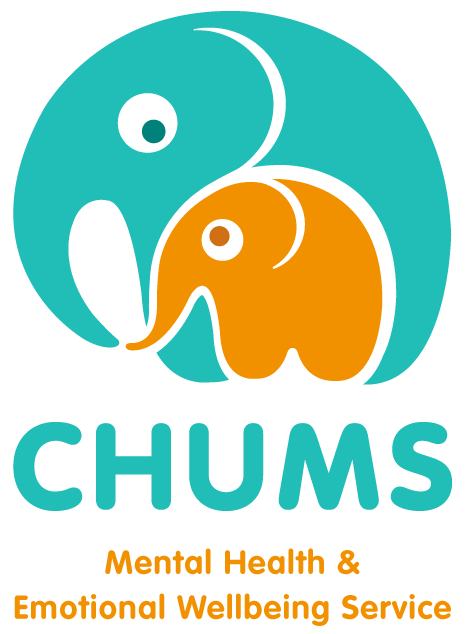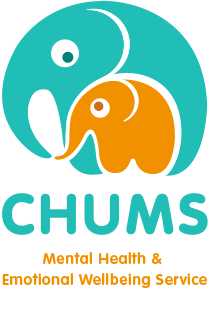TRAUMA SERVICE
Proud to be shortlisted for the UK’s Mental Health and Wellbeing Awards 2022
The Trauma Service supports children in Bedfordshire and Luton who have been affected by distressing events, such as sexual abuse, domestic abuse, assault or witnessing an accident. We support children and young people who have experienced a death of someone they knew in a traumatic way, like murder, suicide or other sudden death. We are also working with child refugees or asylum seekers to help them
sort out the upsetting events they have experienced as they fled their home country to come to the UK. Following such experiences, children and young people may show signs of Post-Traumatic Stress Disorder (PTSD). Children may experience upsetting memories that seem to play over and over in their minds and can cause changes in mood, behavioural problems, anxiety, and disturb their sleep.
Intervention
The Trauma Service aims to deliver the most effective treatment based on the available clinical and research evidence. Currently, we offer Trauma-focused CBT, EMDR, Art therapy and integrative therapy. We continually monitor and evaluate the service we provide.
Referrals
To make a referral to this service, please complete the appropriate referral form at the bottom of this page. A decision will then be made by CHUMS practitioners as to whether the young person is appropriate for the specialist Trauma service. We would usually then get in contact to discuss the best way to support you.
Find out about what we offer in this video, made with children who have been supported by CHUMS Trauma Service.
What is Psychological Trauma?
A psychological trauma can occur when you have experienced either a single event, long lasting event, or repeated events that are so overwhelming that it affects your ability to cope or make sense of what happened. Examples of traumatic events include:
-
Serious accidents, e.g. road traffic collision
-
Loss and grief issues
-
Being told you have a life threatening (terminal) illness
-
Physical, emotional or sexual abuse
-
Neglect
-
Natural or man-made disasters
-
Being taken hostage
-
Bullying
How You May React
Typical reactions that you may feel after a traumatic event include:
-
Constantly thinking about the event.
-
Images of the events keep coming into your mind (known as flashbacks).
-
Difficulty sleeping and/or nightmares.
-
Changes in how you feel emotionally, e.g. frightened, depressed, anxious, angry.
-
Avoiding certain situations that remind you of the event.
-
Feeling numb, stunned, shocked, or dazed and having difficulties connecting with life around you.
-
Denial that the event happened.
-
Concentration and memory problems.
Everyone has different ways of responding to events. In other words, what one individual finds traumatic after an event, another person may not find distressing
How You May Feel
You may feel a wide range of emotions, including:
Angry – in relation to what happened to you and with the person who was responsible.
Guilty – that you think you could or should have done something to prevent what happened (that you feel you were to blame), or that you survived when others suffered or died.
Frightened – that the same event may happen again or that you feel you are unable to cope with your feelings; that you are not in control of what is going on in your life.
Helpless – that you were unable to do something about what happened.
Sad – that the trauma happened or that someone was injured or killed, especially if you knew them.
Ashamed or Embarrassed – by what happened and that you feel you cannot tell anyone about it.
In most cases, the emotional reactions get better over the days and weeks that follow a trauma.
However, in some cases the effects of a trauma can be longer lasting and continue for months and even years after the event.
Receiving the appropriate type of support can help you come to terms with the traumatic experience so that it does not continue to affect you for the rest of your life.
What You Can Do For Yourself
-
At the beginning it is a good idea to allow yourself time to adjust and come to terms with what has happened. You may need to grieve for someone you have lost and process what has happened to you.
-
It can help to find out more details of what happened and where relevant, to talk through the event with other survivors and discuss the feelings you have.
-
Talking through the event with a supportive family member or friend at your own pace can be beneficial.
-
Try and get back into a routine with your sleeping and eating.
If you identify particular times in the day that are more distressing, it could help to try and distract yourself at these times with a positive activity. Ideas include:
-
Talking or phoning someone
-
Watching TV or being on a computer
-
Doing exercise
-
Playing a game or doing a hobby
-
Writing down what you are thinking or feeling.
What Not To Do
• Do not keep your feelings to yourself or bottle them up. Find someone supportive that you can trust to share these feelings with (family members, friends, teachers).
• Do not overburden yourself with other activities. Take some time to look after yourself and nurture yourself.
• It is not advisable to use drugs or alcohol as a way of coping as this can make symptoms worse.
Helping Children After a Traumatic Event
You may notice changes in your child’s behaviour or feelings, which can vary dependant on different ages and stages of development.
Some examples of typical responses may include:
Age 5 and Under |
Age 6 to 11 |
Age 12 to 17 |
|---|---|---|
|
|
|
|
|
|
|
|
|
|
|
|
|
|
|
|
|
|
|
|
|
|
Source: National Institute of Mental Health
Supporting Your Child
-
Children and teenagers will benefit from your reassuring touch—extra cuddling, hugs or just a gentle pat on the back. It gives them a feeling of security and makes them feel safe.
-
Act calm. Children look to adults for reassurance after traumatic events and can pick up on another person’s anxiety.
-
Maintain your usual routines and family rules, such as mealtimes and bedtimes, where possible; this can reassure them that life will be okay.
-
Encourage kids to do activities and play with others. The distraction is good for them.
-
Choose times to talk. Share information about what happened. Allow children to ask questions.
-
Prevent or limit exposure to news coverage. Seeing disturbing events on TV, in the newspaper or on the radio can make them seem to be ongoing.
-
Children cope in different ways. Let your child know it is normal to experience anger, guilt and sadness, and to express things in different ways – for example, a person may feel sad but not cry.
-
Listen and try to understand how your child views the situation. Do not lecture—just be understanding. Let kids know it is OK to tell you how they are feeling at any time.
-
Breathing exercises to relax. Breathing becomes shallow when anxiety sets in; deep belly breaths can help children calm down. You can hold a feather or a wad of cotton in front of your child’s mouth and ask him to blow at it, exhaling slowly. Or you can say, “Let’s breathe in slowly while I count to three, then breathe out while I count to three.” Place a stuffed animal or pillow on your child’s belly as he lies down and ask him to breathe in and out slowly and watch the stuffed animal or pillow rise and fall.
-
Know that it’s okay to answer, “I don’t know.” What children need most is someone whom they trust to listen to their questions, accept their feelings, and be there for them. Don’t worry about knowing exactly the right thing to say — after all, there is no answer that will make everything okay.
(based on information from https://childmind.org/guide/helping-children-cope-traumatic-event/ )
How To Get Help

